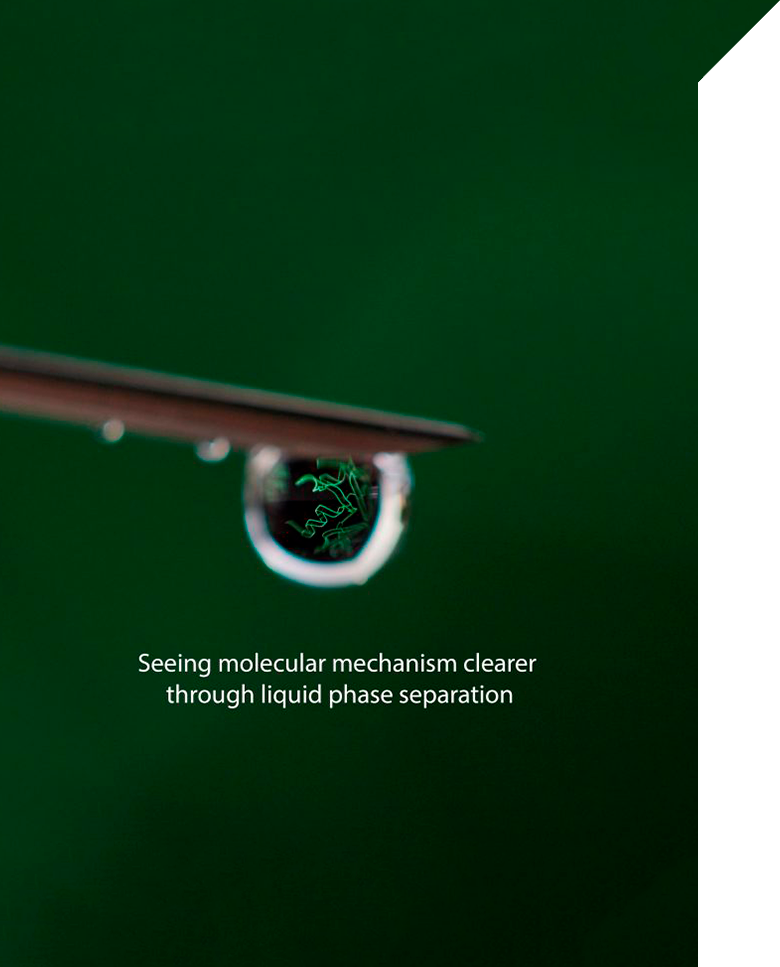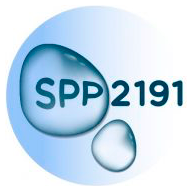About the program

Welcome to the Website of the DFG funded Priority Program 2191
The DFG established SPP2191 which began in May 2019. It will run for a total of 6 years, with a budget of ~ 6 Mio Euro granted for the first 3 years and ~6 Mio Euro for the final 3 years.
Here you can find all the funded projects sorted into 1st (2019 – 2021) and 2nd (2022 – 2024) funding period as well as important information about each PI, and whether he/she has an open position in their project.
Molecular Mechanisms of Functional Phase Separation
During the evolution of complex eukaryotes, nature has shifted from dedicated structured proteins with single biological functions to proteins that are not structured in their native state and hence can perform multiple different functions.
Such intrinsically disordered proteins (IDPs) account for 30% of the human proteome and are central to many vital cellular processes. IDPs are particularly vulnerable to malfunction and consequently IDPs are often linked to human diseases. IDPs are basically polymers and fall outside the scope of established scientific methodology, which often fails in the analysis of such highly dynamic systems. Our limited knowledge of such systems has recently become evident by the realization that IDPs drive a process with fundamental importance in biology: the formation of membrane-less organelles/ condensates/ compartments by liquid-liquid phase separation.
While the existence of membrane-less organelles, such as nucleoli, stress granules or Cajal bodies has been known for a long time, it has remained largely unclear how such they are actually formed, maintained and regulated. Compartments formed by phase separation have very special properties; they are reversible and highly dynamic, and they continuously exchange molecules with their surroundings. These properties require us to rethink the organization of cells and to modify our existing concepts of compartmentalization and regulation of cellular functions – thus frequently termed ‘cell biology 2.0’.
To investigate the newly emerging cell biology 2.0, we need to develop new tools and approaches and combine cell biology and biophysics with biochemical reconstitution as well as theory and modelling. We need to harness the knowledge that already exists in the physical sciences, such as polymer chemistry, where advanced models of polymer behaviour have been developed and optimized for complex, but mostly non-biological systems. Therefore, a key aim will be to adapt or extend physical concepts and methodology to the life sciences.
This combination of disciplines will allow us to make testable predictions about the role of phase separation in diverse biological processes, which will be validated in relevant functional biochemical assays as well as cell biological, developmental and disease models. The use of different approaches will allow researchers to synergistically decipher how novel functions and pathologies emerge from the process of phase separation in biological systems, and what molecular underpinnings facilitate and regulate this key process. This national priority program will bring together scientists from diverse fields, thinking environments and scientific backgrounds. By doing so, this program will nourish a new generation of scientists who challenge the boundaries of existing fields and think outside the box to tackle important emerging problems in the life sciences.

